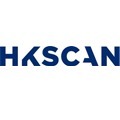 HKScan is strategically and operationally committed to corporate responsibility and to continuously develop its’ way of working. The most important areas of corporate responsibility at HKScan are economic responsibility, social responsibility, animal welfare and environment. Furthermore, the Group wants to ensure transparency and sustainability of its supply chain, and efficient stakeholder cooperation and communication.
HKScan is strategically and operationally committed to corporate responsibility and to continuously develop its’ way of working. The most important areas of corporate responsibility at HKScan are economic responsibility, social responsibility, animal welfare and environment. Furthermore, the Group wants to ensure transparency and sustainability of its supply chain, and efficient stakeholder cooperation and communication.
To further develop its operations HKScan conducted its first group-wide stakeholder dialogue in February-March this year. With the dialogue, HKScan wanted to find out the expectations of its various stakeholders, and how well the expectations can be met with the choices HKScan has made.

Representatives of personnel, customers, consumers, producers, media as well as sub-contractors and other partners at all HKScan’s home markets were invited to the web-based dialogue executed in seven different languages. Answers were given by 1,179 respondents of which 70% were consumers and 10% personnel, the second largest participant group.
”As a meat company operating in the consumer goods business, we wanted to have a strong representation of consumers in the dialogue. It is consumers’ perception of our responsibility and opinion whether we offer the right kind of products that’s decisive”, says Pia Nybäck, VP Quality and Sustainability of HKScan.
Product safety and animal welfare the most important factors of corporate responsibility
The participants were asked to prioritize the different topics of HKScan’s corporate responsibility – the results gave information on the materiality of and the differences between the different areas.
Based on the results, the most important area of responsibility is animal welfare. Several topics related to that, such as “control of animal diseases, e.g. salmonella”; “proper treatment of production animals on the farms”; “animal welfare in the primary production”; and “proper treatment of animals in the slaughterhouses”, were on the top 10 priority list.
Of altogether 66 different topics, the three most important topics were: “products that are safe to eat”, “comply with legislation”, and “valid product information and labeling”.
The way HKScan’s Group Management, who also participated the dialogue, perceived sustainability, is well in line with the stakeholders’ perception.
“The dialogue deepened our understanding of the significance of corporate responsibility (CR) to our different stakeholders, and gave us important information. The results guide our CR programme whose targets, actions and measures are integrated to our daily management and operations”, Pia Nybäck adds.
June 13, 2014 - HKScan


